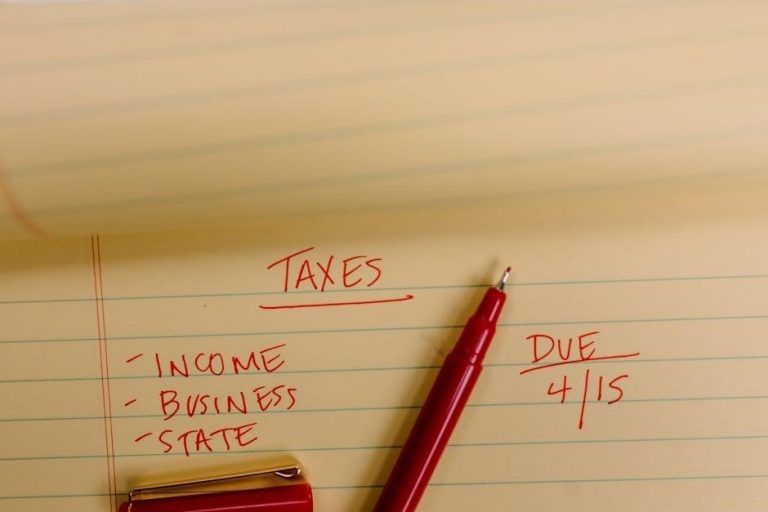Freakonomics explores the hidden side of everything, applying economic principles to unconventional topics. Authored by Steven D. Levitt and Stephen J. Dubner, it challenges traditional wisdom through data-driven insights, offering a unique perspective on everyday life and societal phenomena.
The Concept and Central Idea
Freakonomics introduces a unique approach to understanding economics by exploring unconventional topics. It examines how incentives influence human behavior and societal outcomes, challenging traditional views. Levitt and Dubner combine data analysis with storytelling to uncover hidden patterns. The central idea is that economics is not just about money but about understanding how people make decisions. By applying economic principles to real-world scenarios, Freakonomics offers fresh insights into everyday life, revealing the unseen forces that shape our choices and interactions.
The Authors: Steven D. Levitt and Stephen J. Dubner
Steven D. Levitt, a renowned economist at the University of Chicago, and Stephen J. Dubner, a New York Times journalist, collaborated to create Freakonomics. Levitt’s expertise in data analysis and Dubner’s storytelling skills blend perfectly, offering a fresh perspective on economics. Their work challenges conventional wisdom, uncovering hidden truths behind everyday phenomena. Together, they have redefined how economics is perceived, making complex concepts accessible to a broad audience through engaging narratives and real-world applications.
Key Themes in Freakonomics
Freakonomics examines the power of incentives, data-driven decision-making, and unconventional economic insights. It challenges traditional views, revealing hidden patterns in human behavior and societal dynamics.
The Power of Incentives
Incentives are central to human behavior in Freakonomics. Levitt and Dubner illustrate how rewards or penalties shape decisions, often unconsciously. For instance, real estate agents acting in their own interest rather than their clients’ demonstrate how incentives can lead to moral compromise. This theme shows that understanding motivations is key to predicting behavior, whether in personal or professional contexts. The book highlights how subtle incentives can drive significant changes in individual actions and societal outcomes.
Data-Driven Decision Making
Data is the cornerstone of Freakonomics. Levitt and Dubner emphasize the importance of empirical evidence over intuition or conventional wisdom. By analyzing large datasets, they uncover surprising patterns and correlations, such as the impact of a teacher’s cheating on test scores or the link between abortion legalization and crime rates. This approach demonstrates how data can reveal truths that challenge common assumptions, making it a powerful tool for understanding complex social and economic phenomena.
Unconventional Economic Insights
Freakonomics offers fresh perspectives by applying economic theories to unexpected areas. Levitt and Dubner explore unconventional topics like the economics of crime, education, and even parenting. They reveal how incentives shape behavior and challenge traditional notions of morality versus economics. Their insights, often counterintuitive, transform everyday phenomena into fascinating case studies, proving that economic principles can explain almost anything, from sumo wrestling to schoolteacher cheating.
Where to Find Freakonomics in PDF Format
Freakonomics is available in PDF format on official sources like freakonomics.com and popular platforms such as PDFDrive and Perlego for easy access and download.
Official Sources and Downloads
The official Freakonomics website offers a free PDF download of the book. Additionally, platforms like PDFDrive provide access to the revised and expanded edition. For academic purposes, the book is available on Perlego, an online library. Ensure you use trusted sources to download the PDF legally and safely, avoiding unauthorized sites to support the authors and their work. Always verify the source’s credibility before proceeding with any download to prevent potential risks.
Popular Platforms for Access
Popular platforms offering Freakonomics in PDF include PDFDrive, where the revised edition is available for download. Additionally, the book can be accessed through online libraries like Perlego, which provides a wide range of academic and non-fiction titles. For those preferring e-readers, the EPUB format is also accessible on various digital bookstores, ensuring easy access to this groundbreaking work across multiple devices and platforms, promoting its reach and impact globally.
Freakonomics by Steven D. Levitt and Stephen J. Dubner challenges conventional wisdom, applying economic principles to unconventional topics. It reveals hidden incentives and surprising truths about human behavior and society, offering fresh insights into everyday life through a data-driven lens.
Main Arguments and Discoveries
The central argument of Freakonomics is that economics can illuminate the hidden patterns behind human behavior. Levitt and Dubner reveal how incentives drive decisions, often in unexpected ways. They explore topics like crime trends, parenting, and cheating, uncovering surprising insights. For instance, they argue that the decline in crime in the 1990s was influenced by legalized abortion, reducing the number of at-risk children. Their discoveries challenge conventional wisdom, showcasing the power of data in understanding societal issues.
Economic Principles in Everyday Life
Freakonomics applies economic principles to unconventional topics, revealing how incentives shape decisions. It examines how people respond to rewards and penalties, influencing behavior in areas like parenting, education, and crime. The book demonstrates that economics is not just about money but about understanding how people make choices. By analyzing real-world examples, Levitt and Dubner show how economic thinking can uncover surprising insights into everyday life, making complex concepts accessible and engaging for a broad audience.
The Authors’ Approach and Collaboration
Steven D. Levitt and Stephen J. Dubner combine economic analysis with engaging storytelling, creating a unique collaboration that simplifies complex ideas for a broader audience.
Levitt’s Academic Background
Steven D. Levitt, a renowned economist, holds a Ph.D. from MIT and is a professor at the University of Chicago. His research focuses on unconventional applications of economic theory, particularly in understanding human behavior and social issues. Levitt’s work challenges traditional approaches by applying data-driven analysis to seemingly unrelated fields, such as crime, education, and parenting, which forms the foundation of his contributions to Freakonomics.
Dubner’s Role in Storytelling
Stephen J. Dubner, an award-winning journalist, brings storytelling expertise to Freakonomics. His ability to craft engaging narratives transforms complex economic concepts into relatable stories. Dubner’s journalistic style makes data-driven insights accessible to a broad audience, blending humor and curiosity to explore unconventional ideas, thus enhancing the book’s appeal and readability.
Chapters and Case Studies
Freakonomics features diverse chapters with real-world examples, such as crime trends, schoolteacher incentives, and sumo wrestling, offering unique insights into human behavior and economic principles.
Notable Examples from the Book
Freakonomics presents intriguing case studies, such as the dramatic U.S. crime drop linked to legalized abortion, and the comparison of schoolteachers’ and sumo wrestlers’ incentives. Levitt and Dubner use data to challenge conventional wisdom, revealing how economic principles influence unexpected behaviors. For instance, they explore why parents choose specific names for their children and how these names may impact future success. These examples highlight the book’s unique approach to uncovering hidden patterns in everyday life and society.
Real-World Applications of Freakonomics
Freakonomics offers practical insights for real-world problems. Its data-driven approach has been applied in education, crime prevention, and public policy. For example, analyzing school performance data to identify effective teaching strategies or understanding the impact of incentives on human behavior. These applications demonstrate how unconventional economic thinking can solve everyday challenges, making it a valuable tool for decision-makers across various industries and sectors.
The Impact of Freakonomics
Freakonomics revolutionized economics by applying data to unconventional topics, sparking global discussions and debates. Its influence continues to shape academic and public discourse effectively.
Reception and Influence
Freakonomics became a global bestseller, praised for its engaging storytelling and unconventional insights. Its innovative approach to economics resonated widely, influencing both academic and popular discourse. The book’s success led to a podcast, documentaries, and a TV series, further expanding its reach. By blending data-driven analysis with accessible narratives, Freakonomics reshaped how people understand economics and its applications in everyday life, leaving a lasting impact on modern thought and culture.
Criticisms and Controversies
Despite its popularity, Freakonomics faced criticism for oversimplifying complex issues and lacking a central theme. Some economists argued that its anecdotes and unconventional examples undermined traditional economic rigor. Additionally, the book’s focus on provocative topics, such as the link between abortion and crime rates, sparked heated debates and accusations of cherry-picking data. These criticisms, however, did not diminish its widespread influence and public engagement with economic ideas.
Freakonomics challenges traditional thinking by applying economic principles to unconventional topics, offering fresh insights into human behavior and societal norms. Its innovative approach has made economics accessible and engaging for a broad audience, sparking widespread interest and debate about the hidden forces that shape our world.
Final Thoughts on Freakonomics
Freakonomics revolutionized economic discourse by blending academic rigor with engaging storytelling. Its exploration of hidden incentives and unconventional insights has reshaped how we view everyday phenomena. The collaboration between Levitt and Dubner created a unique narrative that challenges readers to think critically about the world. Their work continues to inspire both academics and the general public, proving that economics can be both accessible and fascinating; Its impact remains profound, influencing modern thought on behavior and decision-making.
Relevance in Modern Economics
Freakonomics remains highly relevant in modern economics by challenging conventional wisdom and applying data-driven analysis to real-world issues. Its emphasis on incentives and human behavior offers fresh perspectives on decision-making and societal trends. The book’s approachable style has made economics accessible to a broad audience, inspiring new ways of thinking about complex problems. Its influence extends beyond academia, shaping public discourse and encouraging interdisciplinary approaches to understanding economic and social phenomena in contemporary society.



